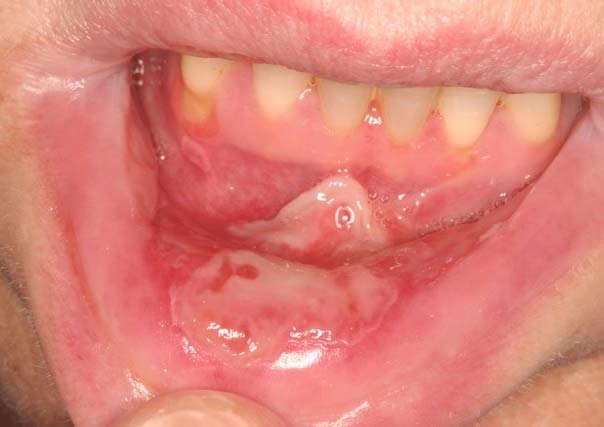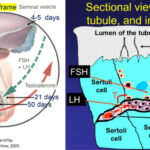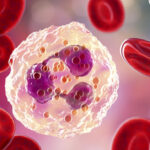Chemotherapy-induced mucositis is a common and debilitating condition experienced by many cancer patients undergoing chemotherapy. This condition refers to the painful inflammation and ulceration of the mucous membranes in the mouth and gastrointestinal tract, often impacting the patient’s quality of life. In this article, we explore the causes, symptoms, treatment options, and preventive strategies for chemotherapy-induced mucositis, providing a comprehensive overview for patients and healthcare providers alike.

What Is Chemotherapy-Induced Mucositis?
Chemotherapy-induced mucositis is a severe side effect of chemotherapy, characterized by inflammation and ulceration of the mucosal lining in the mouth, throat, and digestive tract. The chemotherapy drugs, which are designed to target rapidly dividing cancer cells, can inadvertently affect healthy cells in the lining of the gastrointestinal tract. This damage leads to painful sores, difficulty swallowing, and a higher risk of infection.
Causes of Chemotherapy-Induced Mucositis
The primary cause of chemotherapy-induced mucositis is the cytotoxic effect of chemotherapy drugs on rapidly dividing cells. These drugs do not differentiate between cancerous cells and healthy cells, especially those in the mucosal lining. The following factors contribute to the development of mucositis:
- Direct Toxicity of Chemotherapy Drugs: Drugs such as fluorouracil (5-FU), methotrexate, and cyclophosphamide are known to cause direct damage to the mucosal cells.
- Immune System Suppression: Chemotherapy suppresses the immune system, making it harder for the body to heal and increasing the likelihood of infections.
- Inflammatory Response: Chemotherapy triggers an inflammatory response that can exacerbate the condition.
- Disruption of Oral Flora: Chemotherapy disrupts the natural balance of bacteria in the mouth, which can lead to infections and further irritation.
Symptoms of Chemotherapy-Induced Mucositis
The symptoms of chemotherapy-induced mucositis can range from mild to severe, depending on the extent of mucosal damage. Common symptoms include:
- Painful Mouth Sores: Open ulcers that develop on the inner cheeks, tongue, and gums, making eating, drinking, and talking difficult.
- Redness and Swelling: Inflammation and redness in the mouth, throat, and gastrointestinal tract.
- Difficulty Swallowing (Dysphagia): Due to inflammation and ulcers in the throat, swallowing becomes painful and challenging.
- Dry Mouth (Xerostomia): Reduced saliva production can lead to a dry mouth, further irritating the mucosal tissues.
- Bleeding: In severe cases, ulcers may bleed, leading to discomfort and the risk of infection.
- Infection: A weakened immune system may make patients more susceptible to infections in the affected areas.
Treatment Options for Chemotherapy-Induced Mucositis
While there is no definitive cure for chemotherapy-induced mucositis, there are various treatment options aimed at alleviating symptoms and promoting healing. Treatment strategies generally focus on pain management, infection prevention, and improving overall oral care.
1. Pain Management and Symptom Relief
Managing pain is crucial for improving a patient’s quality of life during chemotherapy. Several strategies can help alleviate the discomfort caused by mucositis:
- Topical Analgesics: Gels, mouth rinses, and sprays containing anesthetics like lidocaine can numb the affected area and provide short-term pain relief.
- Mouth Rinses: Antiseptic or saline mouth rinses can help soothe the mucosal tissues and prevent infection. Rinses containing magnesium sulfate or baking soda can be particularly effective.
- Pain Medications: Over-the-counter pain relievers such as ibuprofen or acetaminophen can help reduce pain and inflammation. In severe cases, prescription painkillers may be necessary.
2. Preventing and Treating Infections
Because chemotherapy compromises the immune system, preventing and treating infections is essential:
- Antifungal Medications: Fungal infections, especially candidiasis (oral thrush), are common in patients with mucositis. Antifungal treatments like nystatin or fluconazole may be prescribed.
- Antibiotics: In cases of bacterial infections, antibiotics may be required to prevent the spread of infection.
- Good Oral Hygiene: Regular brushing with a soft toothbrush and using alcohol-free mouthwash can reduce the risk of infection.
3. Nutritional Support and Hydration
Nutritional support plays a vital role in the management of chemotherapy-induced mucositis:
- Soft and Bland Diet: A diet rich in soft, non-acidic foods can reduce irritation. Avoiding spicy, hot, or rough-textured foods is essential to minimize discomfort.
- Hydration: Staying hydrated is critical, especially when mouth sores or dry mouth are present. Sipping water or using saliva substitutes can help keep the mouth moist.
- Enteral or Parenteral Nutrition: In severe cases where eating is difficult, patients may require nutritional support through a feeding tube.
4. Cryotherapy
Cryotherapy, or the use of ice chips, has been shown to reduce the severity of mucositis in some patients. The cold temperature helps reduce blood flow to the affected tissues, limiting the damage caused by chemotherapy drugs.
5. Growth Factors and Biologics
Certain growth factors, such as palifermin, can be used to stimulate the growth of healthy cells in the mucosal lining, promoting faster healing. These treatments are typically administered prior to chemotherapy to reduce the severity of mucositis.
Preventing Chemotherapy-Induced Mucositis
Prevention is often the best approach to managing chemotherapy-induced mucositis. While it may not always be possible to prevent mucositis entirely, the following strategies can reduce its incidence and severity:
1. Prophylactic Use of Cryotherapy
Using ice chips during chemotherapy infusion can significantly reduce the incidence of mucositis, especially for chemotherapy regimens known to cause severe oral toxicity.
2. Oral Care Protocols
Implementing a rigorous oral care routine before, during, and after chemotherapy is essential for preventing mucositis:
- Brushing and Flossing: Gentle brushing with a soft toothbrush and flossing can remove food particles and bacteria.
- Antimicrobial Mouth Rinses: Rinsing with a prescribed antimicrobial mouthwash can reduce bacterial growth and help prevent infection.
- Regular Dental Checkups: Regular dental exams ensure that any oral health issues are addressed before chemotherapy begins.
3. Maintaining a Healthy Diet
Ensuring that patients maintain proper nutrition can help the body better tolerate chemotherapy and recover more quickly from side effects like mucositis. A well-balanced diet, rich in vitamins and minerals, strengthens the body’s defenses and promotes faster healing of the mucosal lining.
4. Early Intervention
Early detection of symptoms and prompt treatment can prevent mucositis from worsening. Regular monitoring during chemotherapy helps identify mucosal changes before they become severe.

